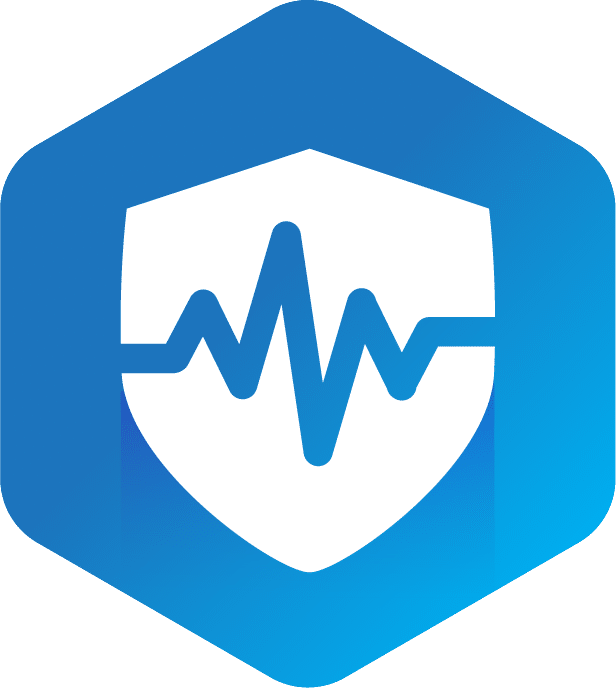Are you looking for ways to keep your website data safe and HIPAA compliant?
In today’s digital healthcare landscape, it is crucial to prioritize the security and privacy of sensitive information.
Fortunately, there are various tools available that can help you achieve this goal.
Encryption software provides an essential layer of protection by encoding data, making it unreadable to unauthorized individuals.
Secure data storage solutions ensure that your information is stored in a protected environment, safeguarding it from potential breaches.
Access control and user authentication measures allow you to control who can access the data, adding an extra level of security.
Regular backups and disaster recovery plans ensure that even in the event of a system failure or cyber attack, your data remains intact.
To maintain HIPAA compliance, auditing and monitoring tools help you detect any vulnerabilities or non-compliant activities proactively.
By utilizing these tools effectively, you can enhance the safety and confidentiality of your website’s data while adhering to HIPAA regulations.
Looking for tools to ensure your website keeps data safe and HIPAA compliant? Well, let’s talk about encryption software for data security!
Encryption is a crucial tool needed to protect sensitive information and meet HIPAA regulations. It involves converting data into code that can only be accessed with an encryption key. By implementing encryption software, you can safeguard patient records, personal information, and other sensitive data from unauthorized access or theft.
This ensures that even if someone gains access to the encrypted data, they won’t be able to decipher it without the appropriate key. Encryption provides an extra layer of security and helps you meet HIPAA requirements for protecting patient privacy.
So make sure to invest in reliable encryption tools that will keep your website secure and HIPAA compliant.
To ensure the security and compliance of your healthcare data, you’ll be thrilled to discover a range of secure data storage solutions available. Here are four options that prioritize HIPAA compliance and provide peace of mind for your website:
When selecting a secure data storage solution for your website, remember to follow best practices and choose a provider that guarantees compliance with HIPAA regulations to safeguard your valuable healthcare data.
When it comes to ensuring the security of your healthcare information, implementing access control and user authentication measures is crucial. These measures help protect sensitive data and ensure that only authorized individuals can access it.
To achieve HIPAA compliance and keep your data safe, there are several tools available for websites. One tool you can use is Jotform Enterprise, which offers increased security with SOC 2 Type II compliance. It allows you to set up access controls and user authentication protocols to restrict unauthorized access.
Another option is TrueVault, a secure database service that guarantees HIPAA compliance. It provides robust access control features, allowing you to manage user permissions and control who can access specific data.
By utilizing these tools for access control and user authentication, you can enhance the security of your healthcare information and ensure HIPAA compliance while keeping your data safe from unauthorized access.
Implementing regular data backups and having a disaster recovery plan in place is essential for safeguarding your healthcare information and ensuring the resilience of your practice.
To keep your data safe and HIPAA compliant, it’s important to utilize secure methods of data storage. Cloud storage solutions like Jotform, Axcient, and V2 Cloud offer HIPAA-compliant options for storing your data securely. These platforms provide real-time cloud storage, encryption, and customizable solutions to meet your specific needs.
Additionally, having a disaster recovery plan in place ensures that you can quickly recover your data in case of any unforeseen events or emergencies. Tools like CareCloud and TrueVault offer disaster prevention backup services and secure database services respectively, helping you protect against ransomware attacks and guaranteeing HIPAA compliance.
By regularly backing up your data and having a solid disaster recovery plan, you can confidently maintain the security and integrity of your healthcare information.
Ensure the security and compliance of your healthcare practice by utilizing HIPAA compliance auditing and monitoring solutions that provide real-time insights into potential vulnerabilities and help you proactively address any risks or breaches. Here are three essential tools to consider:
By utilizing these tools, you can enhance the security of your website’s data, maintain compliance with HIPAA regulations, and minimize the risk of any potential breaches or security threats.
What does it mean to be HIPAA compliant?
HIPAA, which stands for Health Insurance Portability and Accountability Act, sets the standard for protecting sensitive patient data. A HIPAA compliant company has implemented the necessary measures and safeguards to ensure the privacy and security of protected health information (PHI).
What is PHI?
PHI, or protected health information, refers to any identifiable health information that is created, received, transmitted, or maintained by a covered entity or business associate. It includes information related to an individual’s past, present, or future physical or mental health conditions and any healthcare services provided to that individual.
What is a business associate?
A business associate is a person or organization that performs certain functions or activities on behalf of, or provides services to, a covered entity that involves the use or disclosure of PHI. Examples of business associates include legal and accounting firms, IT service providers, and cloud storage providers.
Do healthcare providers need to comply with HIPAA?
Yes, healthcare providers are considered covered entities under HIPAA and are required to comply with the regulations. This includes ensuring the privacy and security of PHI, obtaining the necessary authorizations for disclosure, and implementing safeguards to prevent breaches.
What is a BAA?
A BAA, or business associate agreement, is a contract that HIPAA requires between a covered entity and a business associate. It outlines each party’s responsibilities and obligations regarding protecting PHI and complying with HIPAA regulations.
How can a healthcare organization maintain HIPAA compliance?
A healthcare organization can maintain HIPAA compliance by implementing various security measures and best practices. This includes conducting regular risk assessments, providing employee training on HIPAA regulations, performing audits of security controls, and regularly reviewing and updating policies and procedures.
What should I do in case of a HIPAA breach?
In case of a HIPAA breach, taking immediate action to mitigate the damage is important. This includes notifying affected individuals, reporting the breach to the appropriate authorities, conducting an investigation to determine the cause of the breach, and implementing measures to prevent future breaches.
What are some best practices for HIPAA compliance?
Some best practices for HIPAA compliance include encrypting sensitive data, using secure methods for transmitting PHI, implementing access controls and authentication mechanisms, regularly backing up data, and conducting regular security assessments.
In conclusion, there are several tools available for websites to ensure the safety and HIPAA compliance of data. These tools include encryption software, secure data storage solutions, access control measures, regular data backups, and HIPAA compliance auditing and monitoring tools.
By utilizing these tools, healthcare organizations can protect sensitive information and maintain compliance with HIPAA regulations. It’s crucial to establish Business Associates Agreements with third-party providers and implement administrative, physical, and access control safeguards to safeguard protected health information (PHI).
Overall, these tools play a vital role in maintaining data security in the digital healthcare landscape.

